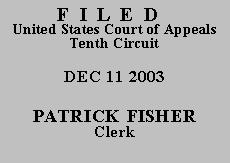

Defendant Joseph Hernandez, appearing pro se, appeals the district court's grant of summary judgment to plaintiff Ameriquest Mortgage Company. We exercise jurisdiction pursuant to 28 U.S.C. § 1291 and affirm.
On July 27, 1999, Hernandez executed a promissory note in favor of Ameriquest in the principal amount of $206,400 with interest at the rate of 9.99% per annum, payable in monthly installments of $2,012.03. The note was secured by a mortgage on real property located in Owasso, Oklahoma. Hernandez received all disclosures required by the Truth in Lending Act, 15 U.S.C. § 1601 et seq., including a Notice of Right to Cancel, and the mortgage was properly recorded. The Notice of Right to Cancel provided that Hernandez could cancel the transaction within three days of the date of the transaction by notifying Ameriquest in writing at "1100 Town & Country Rd., Ste. 200, Orange, CA 92868," and the final date for cancellation was noted as July 30, 1999. ROA, Vol. I, Doc. 24, Exh. G.
Hernandez alleged that he learned the day after he signed the note that the Veterans Administration was taking back $21,000 of his disability pay and that, as a result, he needed to cancel the mortgage agreement immediately. Hernandez alleged he was aware of the three-day rule to cancel and immediately began trying to call Ameriquest, but was unable to speak to anyone. On the third day, he allegedly spoke to an assistant at Ameriquest and prepared an undated letter of cancellation and mailed it to Ameriquest at an address different than the address stated in Notice. The loan was not cancelled as a result of Hernandez's actions and the loan proceeds were disbursed. The loan proceeds were used to pay off Hernandez' first mortgage with additional funds of approximately $4,800 disbursed in a check payable to Hernandez, which he negotiated on October 4, 1999. Hernandez thereafter defaulted on the note and mortgage.
Ameriquest filed an action in Oklahoma state court seeking to have Hernandez declared in default and to foreclose on the mortgage. Hernandez removed the action to federal court. Ameriquest filed a motion for summary judgment and Hernandez did not respond. In granting summary judgment in favor of Ameriquest, the district court found that Hernandez was "in default on his debt to [Ameriquest], that the transaction was not rescinded, and there [was] no genuine issue of fact that would bar summary judgment." ROA, Doc. 30 at 3.
Hernandez contends on appeal that (1) he complied with the three-day rescission rule; (2) the court failed to require that his deposition be taken; and (3) the court refused to hear his testimony.
We review the grant of summary judgment de novo. See Jurasek v. Utah State Hosp., 158 F.3d 506, 510 (10th Cir. 1998). Summary judgment is appropriate "if the pleadings, depositions, answers to interrogatories, and admissions on file, together with the affidavit, if any, show that there is no genuine issue as to any material fact and that the moving party is entitled to a judgment as a matter of law." Fed. R. Civ. P. 56(c).
The district court found that Ameriquest properly informed Hernandez of his right to rescind in accordance with federal regulations. The court further found that Hernandez failed to file a rescission by the July 30, 1999, deadline with Ameriquest at the address stated on the Notice of Right to Cancel. Hernandez, who was represented by counsel, did not respond to the motion for summary judgment and did not provide contrary facts to the district court.
Although Hernandez contends that his deposition should have been taken, there is no rule or case law requiring the taking of his deposition. "In the absence of a specific federal rule, the Federal Rules of Civil Procedure permit federal judges to regulate practice 'in any manner consistent with federal law, rules adopted under 28 U.S.C. §§ 2072 and 2075, and local rules of the district.'" Beaird v. Seagate Technology, Inc., 145 F.3d 1159, 1164 (10th Cir. 1998) (quoting Fed. R. Civ. P. 83(b)). Further, the district court gave Hernandez the opportunity to respond to Ameriquest's motion for summary judgment and provide the court with his own affidavit or any other evidence to support his position. The court properly concluded that on the evidence before it there was no factual dispute and Ameriquest was entitled to summary judgment.
AFFIRMED.
Entered for the Court
Mary Beck Briscoe
Circuit Judge
*.This order and judgment is not binding precedent, except under the doctrines of law of the case, res judicata, and collateral estoppel. The court generally disfavors the citation of orders and judgments; nevertheless, an order and judgment may be cited under the terms and conditions of 10th Cir. R. 36.3.